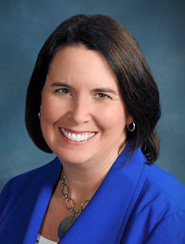
Florida charter schools could give admissions preference to students whose previous schools struggled academically under legislation filed today in the state Senate.
The bill by Sen. Kelli Stargel, R-Lakeland, would add students who come from schools with a history of “D” or “F” grades to the list of groups allowed to receive preferential treatment in charter school admissions, which generally must be conducted by lottery.
As noted by the Gradebook, the bill would also bar charters from counseling out, or denying admissions to, students who struggle academically or have to repeat a grade.
Other parts of SB 830 mirror a bill that has been discussed and drafted, but not yet filed, in the state House. It would create a special status for “high-impact” charter school networks, a change aimed at drawing more KIPP-like schools to Florida.
The bill would also tackle a major subject of debate for Florida charter schools, by giving school districts explicit legal authority to reject charter applications based on their would-be operators’ past performance.
That issue has become a priority for national groups and the state Department of Education, which are taking steps to curb the number of charter schools that fail shortly after they open. The bill would require charter applications to include a list of operators’ past schools, and those schools’ letter grades — information the National Association of Charter School Authorizers is trying to make more accessible to districts.


